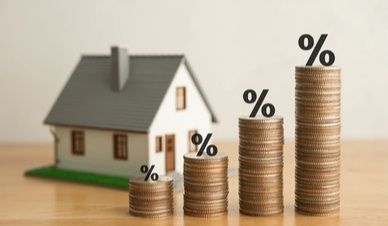1. Negotiate a Better Rate with Your Lender
Shop Around: Compare interest rates and terms from different banks and financial institutions (e.g., Standard Bank, Nedbank, Absa, FNB, or smaller institutions).
Loyalty Benefits: If you have a long-standing relationship with a bank, ask if they can offer preferential rates.
2. Improve Your Credit Profile
A strong credit score gives you leverage to negotiate better rates.
Pay off debts, avoid late payments, and limit the use of revolving credit (like credit cards).
3. Make a Larger Deposit (Down Payment)
Increasing your deposit reduces the loan amount and may secure a better interest rate.
In South Africa, deposits of 20% or more often lead to more favorable loan terms.
4. Choose a Fixed-Rate Bond
Consider opting for a fixed-rate mortgage to lock in your repayment amount, even if interest rates rise further.
Fixed-rate loans are available in South Africa, though the rate is typically slightly higher than variable rates.
5. Use a Bond Originator
Companies like ooba and BetterBond compare rates across multiple lenders on your behalf, helping you secure the best deal.
6. Pay Additional Amounts Towards the Bond
By paying extra whenever possible, you reduce the principal faster, lowering the total interest paid.
South African banks usually allow additional payments without penalties on flexible loans.
7. Opt for Shorter Loan Terms
While 20- or 30-year bonds are common, choosing a 10- or 15-year term reduces the total interest.
Monthly payments will be higher, but you'll save significantly over the loan's lifespan.
8. Consider a Variable vs. Fixed Hybrid Loan
Some banks offer hybrid mortgage options that combine fixed and variable rates, giving you some predictability while benefiting if rates drop.
9. Refinance or Renegotiate When Rates Drop
If interest rates decrease, refinance your bond or negotiate better terms with your lender.
Ensure that your loan agreement doesn't have significant penalties for refinancing.
10. Explore Government Programs
Check if you qualify for assistance through the Finance Linked Individual Subsidy Programme (FLISP), which offers subsidies to lower-income households for home loans.
11. Delay Homeownership if Possible
If rates are prohibitively high, consider renting while saving for a larger deposit or waiting for more favorable market conditions.
12. Downscale Property Expectations
Opt for a smaller or more affordable property, then upgrade when market conditions improve.
Local Insights:
South Africa's mortgage rates are tied to the repo rate set by the Reserve Bank. Keeping track of monetary policy decisions can help you time your home loan application.
Partner with a knowledgeable estate agent or mortgage broker to navigate the market effectively.
By combining these strategies, you can manage the costs associated with high mortgage rates and make more informed financial decisions.














No comments:
Post a Comment